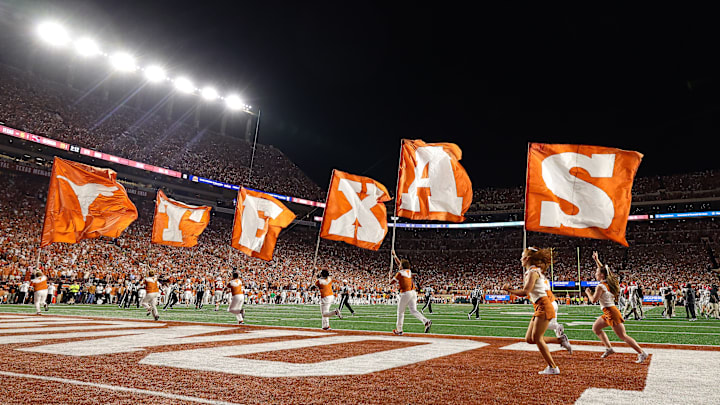The Southeastern Conference (SEC) handed down a $250,000 fine to the University of Texas after fans disrupted the October 19, 2024, football game against Georgia Bulldogs.
The SEC cited a "significant breach of sportsmanship" after some fans threw debris onto the field, causing a lengthy delay and potentially endangering both players and officials. Although the game itself took a dramatic turn in Texas’s favor, with an officiating reversal leading to a touchdown, the aftermath of the incident is where the real consequences lie.
With fans upset by a pass interference call, water bottles, beer cans, and other objects began raining down onto the field, forcing a halt in play. Texas head coach Steve Sarkisian personally had to intervene, heading to the end zone to calm the crowd and ask for the behavior to stop. Although the call was eventually reversed, allowing Texas to score and close the gap with Georgia, the damage had been done.
In the end, it was still the Bulldogs who came out the victor with a 30-15 win.
The SEC isn’t letting the situation slide, as the actions of the fans created a dangerous environment and violated the conference’s strict policies regarding game management.
“The throwing of debris and resulting interruption of play that took place Saturday night cannot be part of any SEC event,” said SEC Commissioner Greg Sankey. “The SEC is assigned responsibility by its membership to enforce its sportsmanship and game management policies and these actions are consistent with that oversight responsibility, including the financial penalty and mandated reviews.”
In response, Texas must now comply with several SEC-imposed actions. Aside from the financial penalty, the university is required to use all available resources—such as security footage and stadium video—to identify those responsible for throwing objects.
Once identified, these individuals will be banned from attending Texas Athletics events for the remainder of the 2024-25 academic year. The university is also required to review and update its game management procedures, including its alcohol availability policies, to prevent similar incidents from happening again.
Perhaps the most significant repercussion Texas now faces is the potential loss of alcohol sales at its athletic events. While the SEC has not yet suspended Texas’s alcohol sales, the threat is very real.
If Texas doesn’t meet the requirements set forth by the SEC, the university risks having alcohol privileges revoked entirely. This would deal a considerable blow, especially to revenue. The SEC's rules clearly state that if alcohol sales contribute to game management problems, like in this case where beer cans were used as projectiles, it will lead to immediate consequences.
Texas must submit a formal report to the SEC, outlining its efforts to identify and penalize those responsible for the disruption and detailing its updated policies to ensure compliance with SEC standards.
Moving forward, Texas faces the challenge of keeping its fanbase in line while ensuring that future events remain safe and enjoyable for all attendees. The university now finds itself in a position where it must not only deal with the financial and logistical consequences but also face the possibility of major changes to the game-day experience if further incidents occur.
